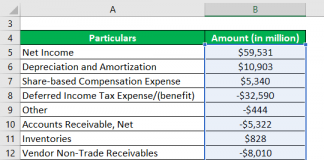Many of the people who are in serious financial difficulty with their home loans have both a first and second mortgage. Faced with foreclosure and perhaps even bankruptcy, some may wonder “what if I just stop paying the second mortgage? What’s the worst they can do?”
Like a lot of attempts to game the system, this is a plan that sounds clever on the surface but in practice is a really bad idea. True, the holder of a second mortgage is in a subordinate position to the primary lender, and in a foreclosure, doesn’t get a dime until the primary lien is paid in full. But that doesn’t mean they don’t have options.
First, a little background. Second mortgages are a fairly common feature on home loans. Prior to the collapse of the credit markets, they were commonly used in lieu of down payments to enable buyers with minimal savings to buy a home – the primary loan requirements for a usda home loan would cover 80 percent of the purchase price, and a second mortgage would be taken out for 20 percent to cover the down payment on the first.
Second mortgages are also used by people who have some equity in their homes to provide money for any of a variety of purposes – often home repairs or improvements, but also vacations, car purchases, children’s college tuition or medical expenses, among others.
Second lien holder may not be able to collect in a foreclosure
Because second mortgages are subordinate to the primary mortgage, they’re riskier for the lender. That was fine as long as home values remained high enough to support both loans – but when home values fell, in many cases they fell far enough that the second lender wouldn’t get anything in the event of a foreclosure – the primary mortgage would take it all.
Second mortgages also carry significantly higher interest rates than primary mortgages do, simply because they are subordinate loans and are therefore riskier for the lender.
So – higher cost, nothing for the lender to claim in the event of foreclosure – what’s to stop a homeowner in financial trouble from simply refusing to make payments on the second mortgage?
Debt won’t go away
Plenty. For one thing, you won’t be avoiding foreclosure, only deferring it. Even if the second lender decides not to foreclose because they can’t get anything out of the property, that doesn’t mean they’re going away. Eventually, once home values recover or you pay down your primary mortgage enough to get some equity in the property, they will be back – and they will foreclose.
In addition, you’ll take a huge hit on your credit rating if you default on any mortgage, first or second. Some people may figure this would be a worthwhile trade-off for staying in their home, but you’ll find yourself paying a lot more for credit, if you can get it at all. It’s one thing to live without credit cards, but suppose you need a new car – or car repairs or other unforeseen expenses? Credit’s a good thing to have, even if you don’t plan to use it right away.
You’ll also incur late fees and other penalties if you stop making your payments on your second mortgage, making the current situation only worse. Plus you’re going to start getting harassed by collection agencies like you wouldn’t believe.
Furthermore, the secondary lender may decide to purchase the primary loan from the other lender, then foreclose. It’s fairly easy to do – banks sell loans all the time to each other. Or the primary lender may even purchase the second loan so they can foreclose on you – once they learn you’ve defaulted on the second mortgage, they may figure it’s in their best interest to get you out of there.
Mortgage refinance, loan mods offer better solutions
Most homeowners are going to be much better off doing everything they can to either refinance their mortgages or get a loan modification rather than simply stopping payments on what is essentially an unsecured second mortgage. There will be little to no impact on your credit rating, if you succeed, and both are potentially long-term solutions. Also, with Fannie Mae and Freddie Mac now supporting refinances at up to 125 percent of current home value under the government’s Making Home Affordable refinance plan, refinancing is now a viable option for many who would not have qualified a few months ago. A mortgage lender or broker can help you determine if you qualify.
The one time it might make sense to stop paying on a second mortgage is as a last-ditch negotiating tactic when the lender refuses to modify or refinance the loan, or resubordinate it when refinancing the primary loan. The only reason for doing this is to pressure the lender into agreeing to new terms, and it’s a high-risk tactic – you’ll take a hit on your credit and could lose the home to foreclosure. This is one of those cases where it’s definitely a good idea to check with an attorney before proceeding.























